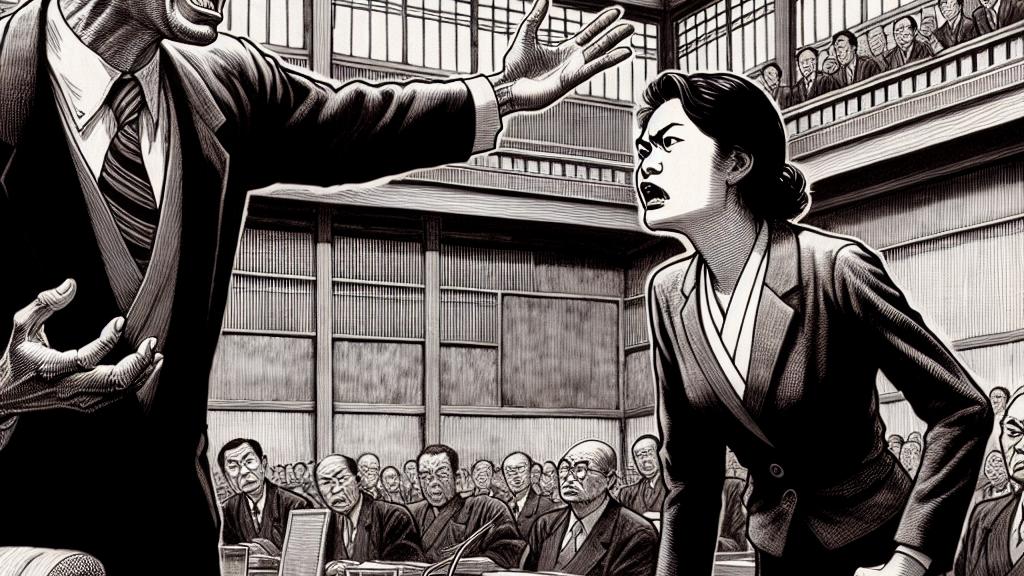Strong Opposition from Sugio over Tamaki's Remarks
Overview
- Sugiō openly expresses strong dissatisfaction with Tamaki's remarks about the opposition's unity in light of election results.
- The controversy erupted during a critical session where 84 votes were deemed invalid in the prime ministerial election.
- This interaction signals significant underlying tensions within Japan's opposition landscape, potentially undermining public confidence.

Context of the Political Disagreement
In a recent dramatic episode in Japan's National Diet, tensions reached a boiling point when Sugiō Hideya, a prominent member of the Constitutional Democratic Party, fiercely criticized the remarks made by Tamaki Yuuichirou, the leader of the National Democratic Party. The backdrop to this conflict was the contentious situation surrounding the election, where a troubling total of 84 invalid votes raised eyebrows and prompted scathing commentary. With Tamaki positioning these invalid votes as evidence of the opposition's shortcomings, Sugiō felt compelled to respond, capturing the moment on social media. His remarks were not merely about defending his party; they echoed the frustrations shared by many within the opposition who are struggling to present a cohesive front against the ruling coalition.
Sugiō's Sharp Retort and Its Significance
Sugiō's sharp retort was notable for its clarity and passion. In a decisive statement, he called Tamaki's criticism hypocritical and pointedly remarked, 'It’s easy to assign blame, but real leaders must take responsibility.' This expression effectively illuminates the strain within the opposition ranks while vividly illustrating the urgent need for accountability among its leaders. By drawing attention to Tamaki's previous dealings with the ruling party, Sugiō reignited a critical conversation about party alignment and strategy. In doing so, he not only defended his party's credibility but also highlighted a paramount issue: the public’s growing discontent with perceived shortcomings among political leaders. His outspoken stance against Tamaki's comments resonated deeply, stirring discussions about unity and effectiveness that could very well shape the future of the opposition.
Implications for the Future of Japanese Politics
The ramifications of this confrontation stretch well beyond personal grievances; they highlight the broader challenges that political factions in Japan currently grapple with. As Sugiō's remarks echo throughout the political landscape, observers are left to ponder whether the opposition, characterized by internal conflicts and visible rifts, can regain the trust of the electorate. This situation poses a pivotal question: Will these public disputes galvanize the opposition into a more united force, or will they continue to weaken their influence and capabilities? The pressure is immense, as the electorate seeks leaders who provide not just rhetoric but tangible solutions and a unified vision. Thus, how the opposition navigates these challenges may very well determine their fate in upcoming elections. The underlying themes of tension, responsibility, and unity in this dispute represent a crucial moment for Japanese politics, one that could either cement or fracture their future.

Loading...